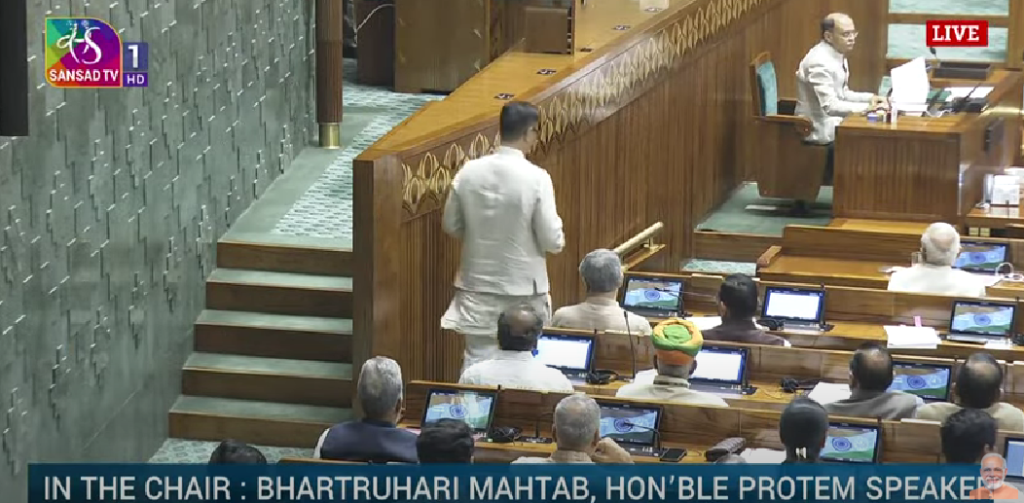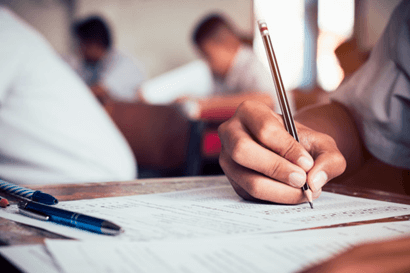The new Parliament session has begun with significant events and controversies, including the NEET exam row and the appointment of the Pro-Tem Speaker. Key highlights include PM Modi’s remarks, the oath-taking ceremony of newly elected MPs, and the upcoming Lok Sabha Speaker election.
Key Highlights and Detailed Overview
- Parliament Session Commencement: The first Parliament session after the Lok Sabha elections commenced today, marking the beginning of legislative activities for the newly elected government. This session is crucial for setting the legislative agenda and discussing key policy issues. Newly-elected MPs, including Prime Minister Narendra Modi, took their oaths, initiating their roles in the Parliament.
- Pro-Tem Speaker Appointment: BJP MP Bhartruhari Mahtab was sworn in as the Pro-Tem Speaker by President Droupadi Murmu at the Rashtrapati Bhavan. The Pro-Tem Speaker’s main responsibility is to oversee the initial meetings of the Lok Sabha, including the oath-taking of MPs and the election of the new Speaker and Deputy Speaker. Mahtab’s experience and seniority are expected to ensure a smooth transition during these first few sessions of the Parliament.
- Oath-Taking Ceremony: Prime Minister Narendra Modi, along with approximately 280 MPs, took the oath of office today. The remaining 260 MPs, including Congress leader Rahul Gandhi, will take their oaths tomorrow. This ceremony is a formal requirement for MPs to officially begin their legislative duties in the Parliament.
- Controversy Over Pro-Tem Speaker: The Congress party has expressed dissatisfaction over the appointment of Bhartruhari Mahtab as Pro-Tem Speaker. Traditionally, the role of Pro-Tem Speaker is assigned to the senior-most member of parliament. The Congress expected Kodikunnil Suresh, an eight-time MP from Kerala and a Dalit leader, to be appointed. The BJP’s choice of Mahtab has led to accusations of sidelining Suresh and sparked a broader debate on procedural norms and inclusivity in parliamentary appointments.
- Lok Sabha Speaker Election: The election for the Lok Sabha Speaker is scheduled for June 26. The Pro-Tem Speaker will conduct this election. Once the new Speaker is elected by a simple majority, the role of the Pro-Tem Speaker will conclude. Given the BJP’s significant majority, their nominee for Speaker is expected to secure the position without much opposition. The Speaker’s role is crucial in maintaining order during debates, ensuring the proper conduct of parliamentary business, and representing the Lok Sabha in its interactions with the President and the Rajya Sabha.
- Prime Minister Modi’s Remarks: Ahead of the Parliament session, Prime Minister Narendra Modi criticized the Congress party, referring to the Emergency imposed in 1975 as a “blot” on Indian democracy. He expressed hope that the Opposition would play a constructive role in Parliament, emphasizing that the public desires meaningful debate and diligence, not disruption. Modi’s comments set the tone for a session anticipated to feature significant legislative and policy discussions.
- NEET and NET Exam Row: The Parliament session is also expected to address issues related to alleged irregularities in competitive exams like NEET and NET. These exams are crucial for students seeking admission to medical and higher education institutions. Amid escalating concerns, the Centre recently replaced the Director General of the National Testing Agency (NTA), Subodh Singh, and established a seven-member panel to review the agency’s functioning and recommend reforms. This move aims to restore credibility and fairness in the examination process.
- New Law Against Exam Malpractices: In response to ongoing controversies, the government has operationalized a stringent law designed to combat malpractices in competitive exams. This law includes severe penalties for offenders, with a maximum jail term of 10 years and fines up to ₹ 1 crore. The legislation underscores the government’s commitment to ensuring the integrity of the examination process and safeguarding students’ interests.
- Congress Protests: The Congress party has been vocal in its criticism of the handling of the NEET and NET exams, holding protests across the country last week. They have demanded the resignation of Education Minister Dharmendra Pradhan, alleging mismanagement and failure to prevent malpractices. Rahul Gandhi has stated that he will bring this issue to the forefront in Parliament, intending to pressure the government to ensure justice for affected students and accountability from responsible officials.
- President’s Address: President Droupadi Murmu is scheduled to address a joint session of the Lok Sabha and the Rajya Sabha on June 27. In her address, she is expected to outline the government’s roadmap for the next five years, highlighting key priorities and legislative initiatives. This address will provide a comprehensive overview of the government’s agenda and set the legislative tone for the Parliament session, which will conclude on July 3.

This inaugural Parliament session after the elections is pivotal, not only for the legislative activities it will undertake but also for addressing significant controversies and setting the direction for the new government. The discussions and decisions made during this session will have lasting impacts on governance, public policy, and the political landscape of the country. The Parliament session is a critical period for both the government and the opposition to present their visions and work towards the nation’s progress.
For further insights and comprehensive content, please visit our homepage



